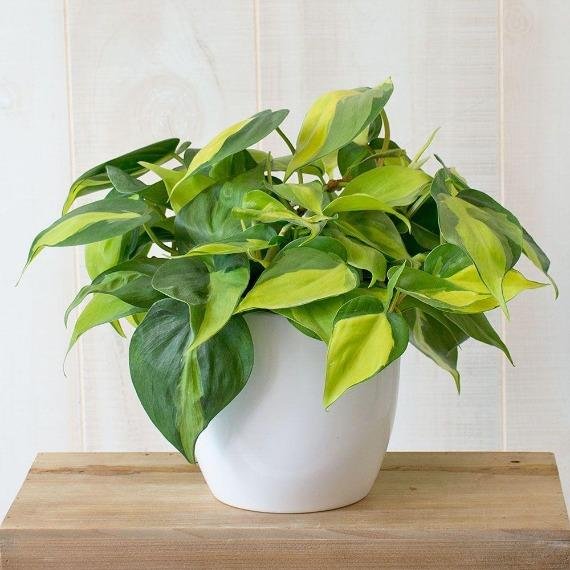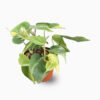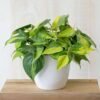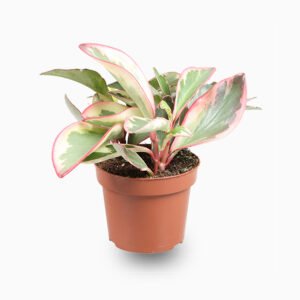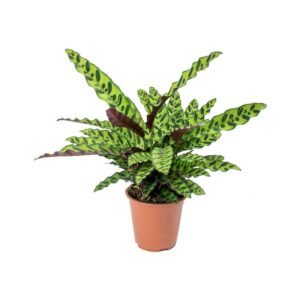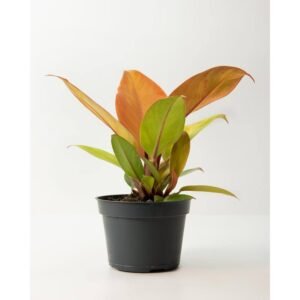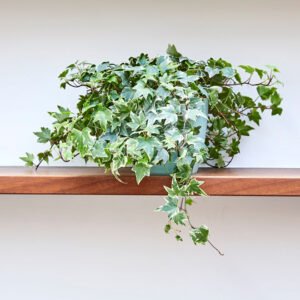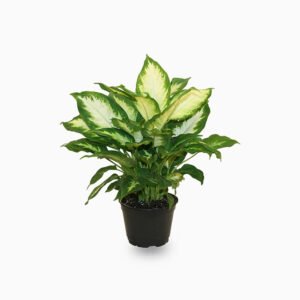| Scientific name | Philodendron hederaceum ‘brasil’ |
| Common name | Philodendron brasil |
| Temperature | 18-24 °C |
| Humidity | 50-60% Mist if needed |
| Light | Bright indirect light |
| Watering | Once per week and keep moist |
| Pests | Mealybugs, scale, spider mites and fungus gnats |
| Pet friendliness | Toxic to pets and humans |
| Maximum Plant height | Up to 120 cm |
| Potting mix | Potting soil / Red soil / Manure / Perlite |
| Pot requirement | Good drainage and Repot every 1-2 years |
| Nutrition | Apply manure once in fortnight and NPK in next fortnight |
| Pruning/training | Remove dead and diseased leaves with sterile shears |
| Description | Philodendrons are tropical plants native to Central and South America. These evergreen perennials belong to the Araceae family—the same family as pothos plants. There are hundreds of philodendron species, each with its own unique cultivars. The most common philodendron plants produce long vines or stems adorned with thick, waxy, dark green leaves.Set the plant in a location with bright, indirect sunlight. Find a position near a window where the sun’s rays never actually touch the foliage. While it’s normal for older leaves to yellow, if this happens to several leaves at the same time, the plant may be getting too much light.When growing philodendron plants, allow the top inch (2.5 cm.) of soil to dry out between waterings. The length of your index finger to the first knuckle is about an inch (2.5 cm.), so inserting your finger into the soil is a good way to check the moisture level. Droopy leaves can mean that the plant is getting too much or not enough water.Vining philodendrons need a post or other supporting structure to climb on. These include blushing philodendrons and heartleaf philodendrons.Non-climbing philodendrons, such as lacy tree philodendrons and bird’s nest philodendrons, have an upright, spreading growth habit. The width of non-climbers can be as much as twice their height, so give them plenty of elbow room. |
Additional information
| Size | 20-30cm |
|---|


